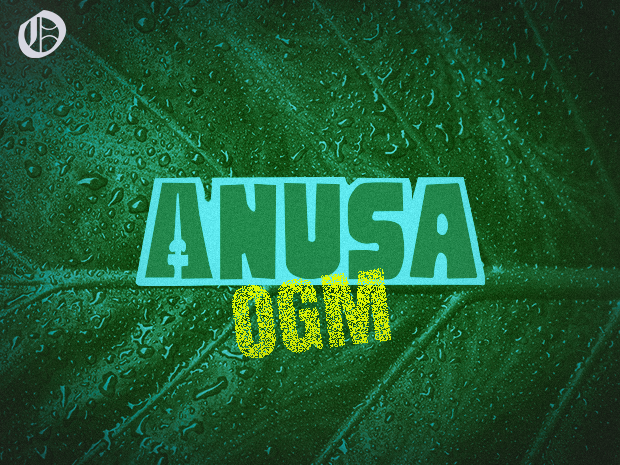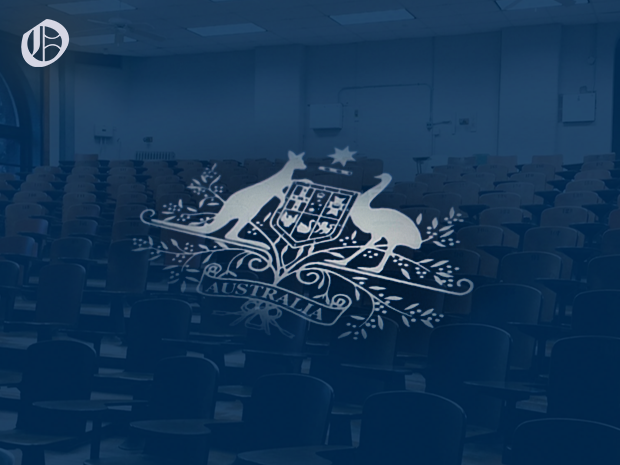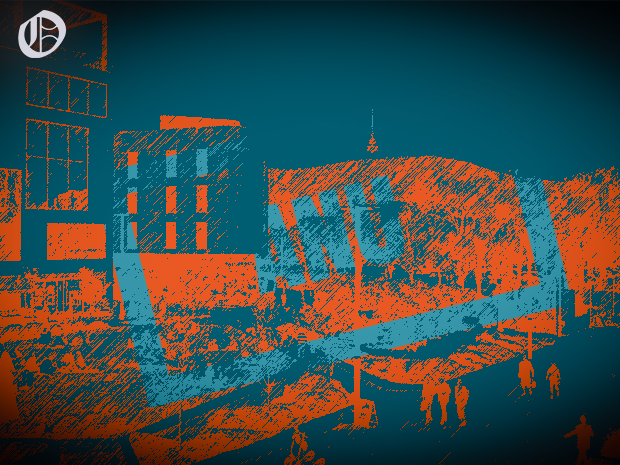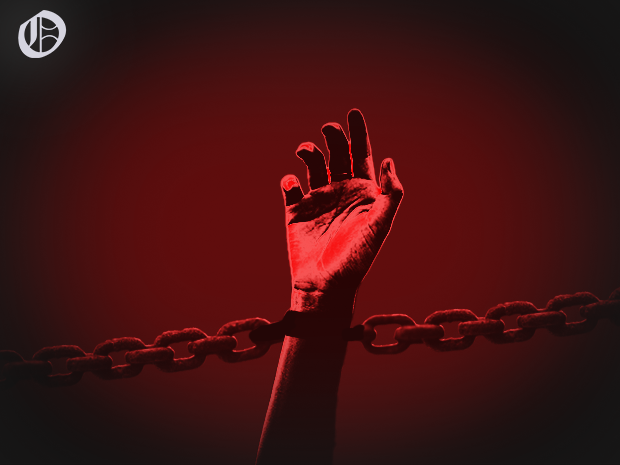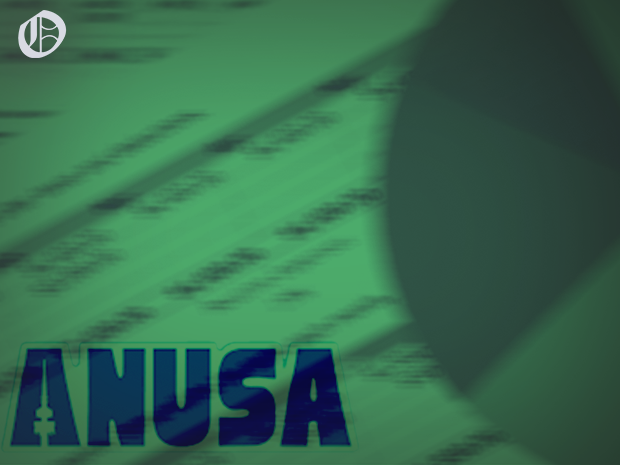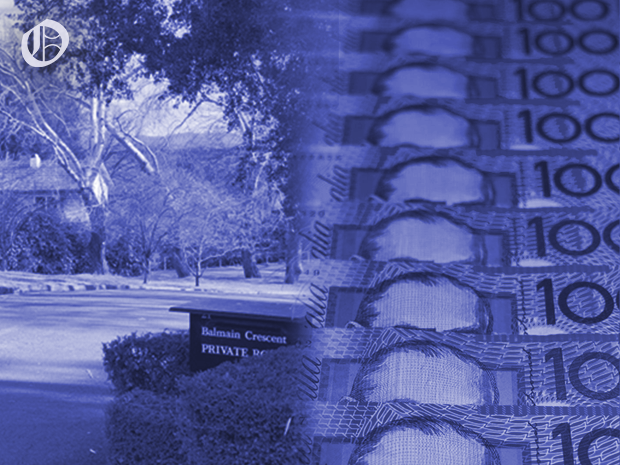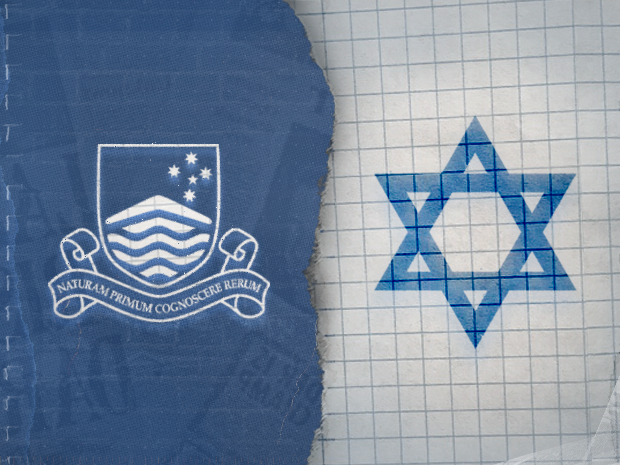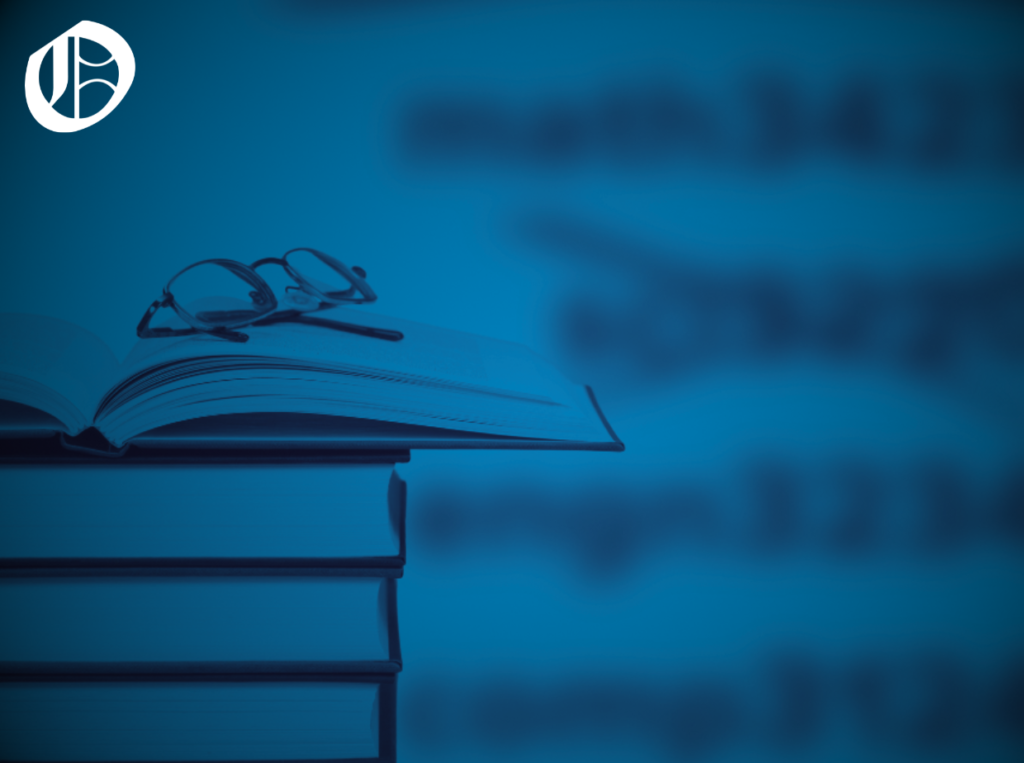Ophel Trial Daily Blog – 2019
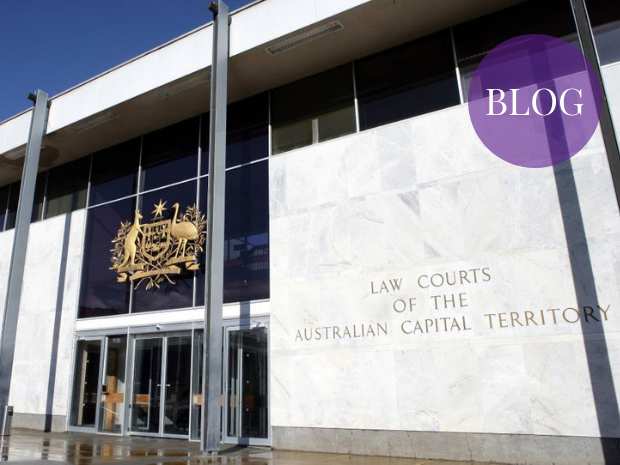
Contributors: Jessica Whiting, Eliza Croft, Adelle Millhouse, Skanda Panditharatne, Anthony Lotric, Anthea Dockrill, and Rebecca Zhong.
10.19
20 March – Day 12
Content warning: this article contains discussion of violence and mental illness.
The Court today heard closing statements from both the Crown and the Defence.
Junior Counsel for the Crown told the jury not to be “distracted” by “red herrings”, and focus on “evidence set in concrete”. She then conducted an overview of testimony of the accused’s friends during his schooling years, and people linked to his basketball team. The Crown questioned whether someone who was experiencing a psychotic illness could achieve a high ATAR and maintain sporting commitments.
The Crown then recounted the accused’s social media and internet search history to submit that the incident involved “significant research and planning”. In particular, the jury’s attention was drawn to his YouTube videos and Google searches of jail sentences in the ACT.
Before reviewing medical evidence, the Crown told the jury that they have to decide the facts of the case, saying, “it is not up to psychiatrists…to tell you how to make your findings.” She emphasised the testimony of the Crown’s expert psychiatric witness, who found “no evidence the [the accused] was overtly psychotic at the time [of the incident]”.
The Crown argued that internet searches made by Ophel prior to the attack regarding the killing capacity of a baseball bat showed that the attack was premeditated. She argued this could also be shown by the messages he sent to former classmates prior to the attack, and his account to a psychiatrist that he had looked in the family shed for an axe. The Junior Counsel also suggested to the jury that the fact that he had drunk alcohol before the attack in order to “prevent anxiety” was something he would not have done if he was incapable of appreciating the gravity of the planned attack.
The Crown referred the Ophel’s statement to a psychiatrist that he had fantasies of killing someone since he was about ten years old, as well as his history of viewing violent videos, as indications of his desensitization to, and willingness to commit, violence. She described Ophel’s references to “higher beings”, evidence which the Defence relied on heavily throughout the trial as evidence of his delusional mental state, as “difficult to understand”. The Crown claimed that the accused’s actual motive was impossible to identify.
The Crown impressed upon the jury the difficulty of translating psychiatry to law, and reminded them of the two legal tests for a defense of mental impairment in the ACT. The first of these is whether the accused could reason that the conduct would be considered by a reasonable person to be wrong., The Crown argued that the accused’s prior research, and his plan to cover the classroom window with cardboard, showed that he knew his conduct would be viewed as wrong. The second test is whether the accused was in control of their actions. The Crown argued that Ophel’s preparation for the incident, and his choice to consume alcohol beforehand, made it clear that he was in control.
Counsel for the Defence then began their closing statements. He questioned the relevance of Ophel’s high school acquaintances for showing that Alex was mentally ill or incapacitated at the time of the incident. He criticized the fact that the evidence of the high school acquaintances was put only to the Crown’s expert psychiatric witness, and not to the other psychiatric witnesses for their assessment. He characterised the submissions by the Crown regarding Ophel’s consumption of alcohol as a “red herring”, as there was “no issue of intoxication in this case”.
The Defence then criticized the Crown for making a psychiatrist who had only had limited access to Ophel their “champion” witness, while ignoring other specialists who had treated him over a longer period of time and closer in time to the incident. He then defended the Defence’s key psychiatric witness during the case as the “best expert” the jury had heard from.
Defence Counsel questioned Ophel’s supposed interest in Elliot Roger, stating that there was no evidence that he was “obsessed” with him, and that it had been Ophel’s friends that talked about him most in their group messages. Counsel brought the jury’s attention to the fact that of the 5000 images on Alex’s phone, only a handful were presented to the Court, which he characterised as an example of “cherry picking” by the Crown. He claimed that the Crown had also cherry picked witnesses by not calling Ophel’s parents, who he claimed were obviously relevant.
The Defence then argued there was “no empirical evidence to support” the Crown’s claim that Ophel was the same in real life as in his YouTube videos. He mentioned earlier witness testimonies that Ophel looked “dazed” and “out of it” during the incident, which he said contradicted Crown’s submission that Ophel displayed a “degree of planning in his behaviour”.
Counsel for the Defence then brought up a number of psychiatric witnesses who were of the belief that the accused’s earlier psychotic symptoms “crystallized into psychosis” in the time leading up to the incident. Defence argued that Ophel showed no “control of conduct”. He emphasised that psychiatrists had said the accused experienced “passivity phenomena”, believing that he was being directed or controlled by an external agent.
Defence disagreed with the Crown’s criteria for examining Ophel’s quality of thinking. He said that what was important was the accused’s “ability to reason”, which was impaired as he was experiencing “both hallucination and delusion”. Defence also stated that Ophel was in a state of functional decline and that the “likelihood of him having a delusion [in the time leading up to the incident] was a real possibility”.
Support is available:
ANU Counselling: 02 6125 2442 (9am-5pm, Mon-Fri)
ANU Crisis Line: 1300 050 327 (5pm-9am Mon-Fri, 24/7 weekends and public holidays)
Lifeline: 13 11 14 (24/7)
Canberra Rape Crisis Centre: (02) 6247 2525 (7am-11pm) – counselling for those affected by sexual assault, with a dedicated counsellor on campus
1800 RESPECT (24/7) – sexual assault and domestic violence counselling and information
The Suicide Call Back Service: 1300 659 467 (24/7) – free phone counselling for anyone affected by suicide
The Crisis Assessment and Treatment Team (CATT): 1800 629 354 (24/7) – assessment and treatment of mentally ill people in crisis situations
23.17
19 March – Day 11
Content warning: this article contains discussion of violence and mental illness.
The Court today continued to hear from psychiatrists who treated and examined Ophel. The accused’s parents also testified.
The first witness was a psychiatrist called by the Crown. He had been a member of the expert panel which had decided whether or not to transfer Ophel from the Alexander Maconochie Centre, an ACT prison, to Dhulwa, a secure mental health unit. He testified that the panel had transferred Ophel, and that involuntary care had been administered following a week of Ophel not taking his medication.
The second witness of the day, called by the Defence, was the forensic psychiatrist who treated Ophel while he was in prison. The Defence Counsel asked the witness whether in her opinion Ophel was mentally ill at the time of the incident, to which she agreed.
The witness then described her assessment of Ophel’s mental state during the incident as an “acute psychotic episode”. She recounted the process of diagnosing Ophel with schizophrenia in the months after the incident, a condition which he was subsequently medicated for. She told the Court of various hallucinations and delusions which she believed showed a disordered state of mind. The accused had described feeling like “a cube was dissolving in the back of his head”, like he was a “figure in a diorama set”, and like he was “driving an unfamiliar vehicle”. The Defense Counsel then referred the witness to an exhibit showing the post Ophel had put on facebook the morning of the incident, and read to her accounts from previous witnesses describing Ophel’s strange and disordered behaviour during and after the incident.
The witness described a crisis that Ophel had experienced some months after the incident while in custody at AMC, after he had stopped taking his medication. She said that Ophel attempted to harm himself, and told the witness that higher beings had told him to stop taking his medication. He also described a number of hallucinations and delusions, such as thinking his “hand was going to strangle him”. The witness concluded by affirming that she formed the opinion, before Ophel’s transfer to Dhulwa, that he would be manageable in mental care rather than prison if his symptoms were treated effectively, and made recommendations to that effect.
The court then heard from Ophel’s father. He told the court that the accused was “disorganised” in relation to his studies, but he nevertheless had the impression that he was “working hard” in college and at university. When asked about his expectations of the accused’s academic performance, the witness described the the low grades he received in semester 1 of 2017 as a “disaster”, particularly in relation to the NCN grade he received for a computing subject, given it was a “core subject”.
The witness recalled an occasion where he had assisted the accused with his first assignment for a computing subject. He described the accused in that instance as appearing “blank”, and that “he didn’t know what he was going”, which was when the witness said he became concerned about him.
A video uploaded to Ophel’s YouTube channel before the attack, titled “All’s well that ends well”, was played to the court. The witness said that he had been “disturbed” by the video, recalling that he had cried when he first saw the video. He described Ophel as appearing “falsely animated and overhyped” in the video, adding that he had never previously seen that kind of body language displayed by him.
When asked about Ophel’s behaviour and personality in the past years, the witness said that his hygiene had worsened in college and at university. He also said that he did not seem to “enjoy” his studies or extracurricular activities like basketball. The witness described the accused as “very disorganised in those years”, noting instances where he would forget that he had assignments due. The witness told the court that, from the time he was in college, the accused had difficulty processing information when spoken to, and would often give “single word answers” in response to questions. He agreed that Ophel was truthful, and emphasised that he had not been violent.
The Defence then referred to writings made by the accused while he was in the Adult Mental Health Unit following his arrest, which the witness had transcribed for easier legibility, as well as writings that he had posted to his Instagram account which made reference to “fifth dimensional beings”. The witness told the Court that he had been unable to make sense of the accused’s writings when he first saw them. He said that the first time the accused mentioned “higher beings” to him was when he was at the AMC. On one occasion, the accused had said to him that “the others, the voices in my head” had told him to stop taking his prescribed medication around the time of his referral to Dhulwa.
In cross-examination, the witness told the court that the morning of the attack had been “the only morning I didn’t have to wake him up”. He said that the accused had otherwise appeared to be “his usual self” when he drove him to class at ANU.
In the afternoon session, the Court heard testimony from the accused’s mother. She denied observing the accused being violent. The witness testified to noticing that the accused was “more disorganised” in college, and had worse hygiene. The witness said that on the morning of the incident, she noted that the accused was awake earlier than usual, and said “bye Mum” in an elated tone.
The second witness of the afternoon was the accused’s sister. She said that the accused “was always very gentle” and denied observing him being violent. The witness stated she noticed “a change” in the accused’s social behaviour, saying he “looked terrified” when talking to people at her birthday party in 2017. In the months before the incident, the witness encouraged the accused to seek advice about his university courses. The witness travelled from Sydney to visit the accused in custody after the incident. She testified to the accused having “no expression at all” during her visit.
These witnesses were the final ones for the trial. The Crown began closing statements in the afternoon, but these will be grouped with tomorrow’s blog to keep the statement together.
Support is available:
ANU Counselling: 02 6125 2442 (9am-5pm, Mon-Fri)
ANU Crisis Line: 1300 050 327 (5pm-9am Mon-Fri, 24/7 weekends and public holidays)
Lifeline: 13 11 14 (24/7)
Canberra Rape Crisis Centre: (02) 6247 2525 (7am-11pm) – counselling for those affected by sexual assault, with a dedicated counsellor on campus
1800 RESPECT (24/7) – sexual assault and domestic violence counselling and information
The Suicide Call Back Service: 1300 659 467 (24/7) – free phone counselling for anyone affected by suicide
The Crisis Assessment and Treatment Team (CATT): 1800 629 354 (24/7) – assessment and treatment of mentally ill people in crisis situations
19.02
18 March – Day 10
Content warning: this article contains discussion of violence and mental illness.
Today the Defence called their second psychiatric expert witness, who examined the accused around the time of the first trial. The Court also heard from from medical professionals who treated Ophel at various times.
Defence Counsel read out parts of his report to the jury, covering the accused’s plan before the attack. During his sessions with the expert, the accused felt that the incident “was the only reasonable option”. The expert also disagreed with the diagnosis of prodromal schizophrenia by Crown experts, saying that evidence available immediately after the incident suggested that he had “a schizophrenic illness”, rather than the precursor condition. The expert said that in determining whether Ophel was experiencing psychosis at the time of the attack, he considered evidence including accounts from Ophel and his parents. He noted that “there were symptoms that took place before the alleged offence … that have been reported after”, which he asserted was common in first instances of psychosis. The expert said he had also considered the testimonies of witnesses to the attack, and those who assessed the accused soon after he was taken into custody. He said that he thought “there is enough evidence … to assume that on balance he was psychotic at the time [of the incident]”.
The Crown then cross-examined the witness in the afternoon session. While the expert stated it is “irrefutable” that not all people who have a mental illness are violent. He also confirmed Crown clarifications that the accused did not mention any ideations of a “higher being” or violent thoughts in his college years. The expert also stated that the accused’s plan showed “some thought, but not much”, describing it as “fanciful.”
The Court also heard further testimony from witnesses who was part of the Crisis Assessment and Treatment Team (CATT) that treated the accused immediately after the attack. The first witness had already testified earlier in the trial, and today went through cross-examination from the Defence. He confirmed his notes which observed the accused pacing in his cell, and noted he “appeared vacant”. In further questioning from the Crown, the witness noted the accused had “a good level of self-care” and “was aware of time and space”.
The Crown’s last witness of the day was an occupational therapist who also observed the accused. She confirmed her notes that described the accused as having an “intense fixed gaze” and being “incongruent to the circumstances” of the situation. In cross-examination, the witness confirmed her police statement, which conveyed the accused having “a lack of judgment” and making “strange statements.”
The Crown completed their evidence-in-chief this afternoon. Defence witness testimony will continue tomorrow.
Support is available:
ANU Counselling: 02 6125 2442 (9am-5pm, Mon-Fri)
ANU Crisis Line: 1300 050 327 (5pm-9am Mon-Fri, 24/7 weekends and public holidays)
Lifeline: 13 11 14 (24/7)
Canberra Rape Crisis Centre: (02) 6247 2525 (7am-11pm) – counselling for those affected by sexual assault, with a dedicated counsellor on campus
1800 RESPECT (24/7) – sexual assault and domestic violence counselling and information
The Suicide Call Back Service: 1300 659 467 (24/7) – free phone counselling for anyone affected by suicide
The Crisis Assessment and Treatment Team (CATT): 1800 629 354 (24/7) – assessment and treatment of mentally ill people in crisis situations
18.05
15 March – Day 9
Content warning: this article contains discussion of violence and mental illness.
The Court today heard from a number of psychiatrists who examined and treated Ophel in the days and months after the incident.
The first witness was a registrar (a doctor undergoing training, in this instance in psychiatry) who examined the accused the day after the incident. The accused reported during examination that he felt “completely taken over” during the alleged attack. She told the Court he displayed no emotion while recounting the incident, which is what led her to write in her report “affect: flat and unnerving”. The witness said that accused displayed some insight into his condition, in that he was “worried about his behaviour”, but he did not appear to think that his belief in a “presence” was a delusion. She recommended that Ophel be placed in the High Dependency Unit (HDU) at the hospital under an involuntary hold, as the witness believed the accused had “fluctuating capacity” to make decisions.
In cross-examination by the Crown, the witness said that her report was a “preliminary judgement” on diagnosis and treatment. She explained that the “passivity phenomenon” (delusion of being controlled) she believed the accused was experiencing is a type of psychosis. However, she said it was not clear at the time she examined him whether he had a chronic psychotic illness or was experiencing a single instance of psychosis. The Crown also questioned the witness on the accused telling her the alcohol and coffee mix he had consumed “tricked him into being able to act”, but the witness said she did not ask him whether he would have acted without the alcohol.
The Defence then called a psychiatrist who first saw the accused on the Monday after the incident. The Court was shown a number of documents that the witness contributed to, including an application for a further psychiatric hold and a discharge report. In the documents, the witness noted that the accused appeared to have “prodromal psychotic illness”, with “passivity phenomenon” and the “suggestion of auditory hallucinations and delusions”. The witness told the Court that he used the wording “suggestion” because the accused would sometimes report hearing voices, but at other times report that the voices were his own thoughts.
The witness was then questioned as to the truthfulness of the accused. He said that “self-reporting” is an important part of psychiatry, and that psychiatrists “don’t assess people for truthfulness”. He told that Court that “overall” he thought the accused was being truthful, and that “inconsistencies” were “not uncommon when people are ill”.
In cross-examination, the witness was asked about why he withdrew a planned application for a psychiatric treatment order. He said that at the time, the accused “was accepting treatment” and “getting better”. The Crown also drew the Court’s attention to notes from the witness which said the accused’s “parents did not see anything unusual leading up to the event”.
The third witness was a psychiatrist who first saw the accused the day before he was transferred to the Dhulwa Mental Health Unit, in June 2018, and then continued being involved in his care while he was at Dhulwa. Her first discussion with the accused lasted two to three hours, and occurred approximately a week after he stopped taking his medication. The accused told her that the “higher beings” had told him to murder his cellmate and assault his case manager, but he “remembered that hurting others is bad”. The witness said that the accused had “mild latency in speech” – or delays before responding – but that this “just seemed like he was thinking”, rather than appearing to be due to him hearing voices.
The witness’ report said that the accused “appeared to have” prodromal schizophrenia in the months prior to the incident. The witness told the Court she believed that “at the time of the attack, [the accused] was suffering from a first incident of psychosis”.
The witness said that the accused told her that at the time he “did not care” what the consequences would be if he carried out his plan, which he believed was “ultimately something he had to do”. She said that the accused was beginning to care about what happened to him while he was in prison was a sign of his condition improving.
The final witness for the day was a forensic psychiatrist, who estimated he had seen the accusedl about 25 times while he was at Dhulwa. He told the Court he believed the accused met the diagnosis for schizophrenia at the time of his transfer to Dhulwa in June 2018. He also stated that it was “likely” that the earliest stage of development of schizophrenia were present prior to the incident at ANU, although it would have been unlikely to have met the criteria for a diagnosis at that stage. He told the Court that he believed Ophel was showing symptoms of illness before the incident, but that these would have been “only weeks, not months” before. In cross-examination, the witness said he had not discussed the incident with Ophel “in any detail”.
Further psychiatric witness will be heard on Monday.
Support is available:
ANU Counselling: 02 6125 2442 (9am-5pm, Mon-Fri)
ANU Crisis Line: 1300 050 327 (5pm-9am Mon-Fri, 24/7 weekends and public holidays)
Lifeline: 13 11 14 (24/7)
Canberra Rape Crisis Centre: (02) 6247 2525 (7am-11pm) – counselling for those affected by sexual assault, with a dedicated counsellor on campus
1800 RESPECT (24/7) – sexual assault and domestic violence counselling and information
The Suicide Call Back Service: 1300 659 467 (24/7) – free phone counselling for anyone affected by suicide
The Crisis Assessment and Treatment Team (CATT): 1800 629 354 (24/7) – assessment and treatment of mentally ill people in crisis situations
09.13
14 March – Day 8
Content warning: this article contains discussion of violence and mental illness.
The Court today heard from an expert witness, a psychiatrist. The witness was appearing for the Defence. A great deal of time was dedicated to Ophel’s behaviour in the three years leading up to the incident. This included evidence previously heard, including Ophel’s declining focus on his studies, and his increasingly inappropriate actions in social settings. The court was again shown one of the “Thane Jekyll” Youtube videos, of Ophel laughing at length, allegedly for no discernable reason. These behaviours were compared to the symptoms of schizophrenia listed in the DSM5, a diagnostic tool for psychiatrists.
Time was also spent on Ophel’s alleged delusions. These included an incident where Ophel allegedly could not recognise his own hand, and thought it was going to strangle him; in addition to his alleged repeated references to a “higher power”, compelling him to undertake the attack. Ophel allegedly felt that there was “something else” controlling his conduct, something “better than” human, “more than” right and wrong. The witness also stressed that the premeditated nature of the crime did not preclude a diagnosis of psychosis during the crime itself. It was the view of the witness under examination that Ophel “almost certainly” had a mental impairment at the time of the attack.
In the afternoon session, the Crown examined the defence witness. In questioning, the expert said that the accused ‘probably was’ psychotic before the incident, citing certain behaviours that occurred in the years before the incident. The witness also disagreed with the proposition that schizophrenia inherently make people violent, stating the evidence is “contested”. When specifically questioning whether violent movies increases the likelihood of violent behaviour, the witness replied “professionally speaking maybe yes.” The witness testified to the accused self-reporting his diagnosis as prodromal schizophrenia. The Crown then immediately questioned whether he was the aware that the accused researched life sentences online before the incident, to which the witness replied “yes.”
The witness saw the accused once in preparation for the trial. In cross-examination, the witness noted that the accused was a “reasonable historian, but did require prompting at times.” He also noted that the accused “understood in general terms” what his plea in court meant.
Testimony will continue on Monday.
Support is available:
ANU Counselling: 02 6125 2442 (9am-5pm, Mon-Fri)
ANU Crisis Line: 1300 050 327 (5pm-9am Mon-Fri, 24/7 weekends and public holidays)
Lifeline: 13 11 14 (24/7)
Canberra Rape Crisis Centre: (02) 6247 2525 (7am-11pm) – counselling for those affected by sexual assault, with a dedicated counsellor on campus
1800 RESPECT (24/7) – sexual assault and domestic violence counselling and information
The Suicide Call Back Service: 1300 659 467 (24/7) – free phone counselling for anyone affected by suicide
The Crisis Assessment and Treatment Team (CATT): 1800 629 354 (24/7) – assessment and treatment of mentally ill people in crisis situations
20.52
13 March – Day 7
Content warning: this article contains discussion of violence, mental illness, and sexual violence. Please note that today’s blog contains potentially disturbing descriptions of the contents of Ophel’s phone.
The Court today heard testimony from ANU employees and police witnesses.
A witness from ANU Security explained a data log tendered by the Crown, which details cards used to access the classroom. He testified that students are only able to enter and exit the room if they are granted access through their student ID. The witness estimated the door unlocks for three seconds. The jury were then showed log entries which recorded an attempt to force open the door, and the ID of an earlier witness used to open the door. The Crown also tendered CCTV footage of the accused in Chifley Library before the incident.
The Court then heard from two police officers who attended the scene. The first witness saw “persons” looking “distressed” outside of the classroom. He testified that he took over restraining the accused from ANU Security and yelled at him to “stop resisting”. The Crown then tendered photographs of the scene, and the bat used in the incident. The jury then heard a recording of the officer interviewing the accused shortly after the arrest. In cross-examination, the officer testified to, at the time, considering that the accused might be intoxicated but not being sure. The second police witness testified to physically arresting the accused. He testified that he asked the accused whether he had drugs based on his behaviour. In cross-examination, the witness confirmed his statement describing the accused as “dazed” and “not fully aware of his surroundings”.
The court heard from a police constable who had taken part in apprehending Ophel after the incident. The jury was shown images of the accused’s bag, which the constable had retrieved from the scene of the incident, as well as its contents. Under cross-examination, the constable affirmed that an ANU security guard had described Ophel, after he had been restrained, as “speaking gibberish”, “groaning”, “non-responsive”, and that this eyes were “glazed over”.
The final police witness was a senior constable who had seized Ophel’s mobile phone, laptop, and family computer, and then reviewed their contents. The jury were shown photos that Ophel had saved on his phone. These included a selfie of Ophel holding a sword, and one of him with a US flag banner wrapped around his face. There were also a number of graphic memes about sexual assault and school shootings, and a picture of a child soldier holding a gun.
The Jury were shown a document from Ophel’s family desktop that had been saved in the directory “Poetry”. This poem, titled “The Tower of Babel”, was identified as being very similar to the one posted on Ophel’s facebook page the day before the incident. The jury were then shown a number of videos posted to Ophel’s Youtube channel, Thane Jekyll.
Support is available:
ANU Counselling: 02 6125 2442 (9am-5pm, Mon-Fri)
ANU Crisis Line: 1300 050 327 (5pm-9am Mon-Fri, 24/7 weekends and public holidays)
Lifeline: 13 11 14 (24/7)
Canberra Rape Crisis Centre: (02) 6247 2525 (7am-11pm) – counselling for those affected by sexual assault, with a dedicated counsellor on campus
1800 RESPECT (24/7) – sexual assault and domestic violence counselling and information
The Suicide Call Back Service: 1300 659 467 (24/7) – free phone counselling for anyone affected by suicide
The Crisis Assessment and Treatment Team (CATT): 1800 629 354 (24/7) – assessment and treatment of mentally ill people in crisis situations
21.31
12 March – Day 6
Content warning: this article contains discussion of violence and mental illness, and graphic descriptions of injuries. Please note that today’s blog contains a detailed description of the events of the attack.
The trial has now entered its second week. Today the Court heard from a number of students in Ophel’s statistics class, as well as a doctor who treated victims and a number of ANU staff.
The Court heard from two students who had been in the class and together called ANU Security and the police. One testified that she had been looking at her tutorial questions when she “heard lots of big noise”. She said she saw a male “holding a baseball bat to hit [the tutor’s] head”, and saw the student sitting next to her [the witness] being hit on the head. Both women told the Court that one male student restrained Ophel in a bear-hug, and that other male students helped after Ophel struggled against the restraint. In cross-examination, one of the witnesses said she described Ophel to the police as being “out of his mind” because “he attacked our class without reasons”.
The court heard from a witness who removed the baseball bat from the classroom, running it to CBE reception after Ophel was restrained. Further witnesses included a student who was struck with the bat, and another student in the class who attempted to call the police.
A student from the statistics class also gave testimony. He said he saw Ophel hit a number of students and the tutor. The witness then helped other students restrain him. He told the Court that Ophel initially struggled against the restraint, then stopped, and then struggled briefly again after the classroom door was opened. In cross-examination, the witness was asked about a photo he took on his phone when the police arrived. The photo, which was shown to the Court, was of Ophel lying face down, being restrained by two police officers.
In the afternoon session, the Court heard testimony from one of the victims of the incident, who sustained injuries to her head and left arm. She told the Court she was facing her computer screen, and heard sustained shouting. The witness recounted that as she was turning around to see where the disturbance was coming from, she was struck in the head. She fell to the ground, and was assisted by friends in exiting the room some time later. The Court also heard from a student sitting next to the accused during the tutorial. She witnessed the first alleged assault, and then saw the accused approach the tutor. In cross-examination, the witness stated that the accused during the incident whispered “something like” the phrase “I’m out of control”.
The Court also heard from a doctor from The Canberra Hospital who treated victims on the day of the incident. The jury was shown photos of the injuries of two victims who sustained trauma to the head. The Crown also tendered a 3D image based on CT scans of a victim who sustained compression fractures to the head.
ANU Security personnel also gave evidence. The Court heard that two officers attended the scene within five minutes of being directed by control. One officer entered the room and directed students to exit the building. The other officer helped three other students restrain the accused. The pair swapped roles, so one could assist the AFP in accessing the classroom.
The last witness of the day was an executive of ANU’s Division of Student Life. He testified to the unit sending an “early intervention” email to the accused in the months before the incident due to him receiving an NCN in one of his course during his first semester. In cross-examination, the witnesses agreed it was possible for a student to peter out over a semester and still receive an overall good grade, depending on the assessment structure. The witness said that to the best of his knowledge, the accused did not access services listed in the email.
Crown witness testimony will continue tomorrow.
Support is available:
ANU Counselling: 02 6125 2442 (9am-5pm, Mon-Fri)
ANU Crisis Line: 1300 050 327 (5pm-9am Mon-Fri, 24/7 weekends and public holidays)
Lifeline: 13 11 14 (24/7)
Canberra Rape Crisis Centre: (02) 6247 2525 (7am-11pm) – counselling for those affected by sexual assault, with a dedicated counsellor on campus
1800 RESPECT (24/7) – sexual assault and domestic violence counselling and information
The Suicide Call Back Service: 1300 659 467 (24/7) – free phone counselling for anyone affected by suicide
The Crisis Assessment and Treatment Team (CATT): 1800 629 354 (24/7) – assessment and treatment of mentally ill people in crisis situations
20.41
8 March – Day 5
Content warning: this article contains discussion of violence and mental illness, and graphic descriptions of injuries. Please note that today’s blog contains a detailed description of the events of the attack.
The Court today heard testimony from four students in Ophel’s tutorial. The Crown presented the Court with medical and audio evidence, while cross examination focused on the accused’s behaviour on the day of the alleged offences.
The first witness was uninjured, and saw the events of the alleged offences. The witness reported that they first heard a “bang” from behind them. He testified to then seeing the accused hitting two students before moving towards the tutor. The accused then allegedly oscillated between hitting the tutor and other students.
The second witness was the first to be injured during the incident. The Court heard that he became unconscious for “a few seconds” and was hospitalised after the incident. The Court was presented with photos of his injuries. In cross examination, the witness said he believed Ophel had “lost control” due to his aggressive behaviour. He also described the accused screaming during the attack.
The third witness testified to restraining the accused during the incident. He said he grabbed the accused by the waist and pinned him to the whiteboard in the room. The Court heard a 000 call from the incident. The witness testified that he took the phone off the tutor to assist with the emergency call, as there were communication difficulties with the operator. The witness said that Ophel then started to grab a hand of another student, so he further restrained further restrained the accused. In cross examination, the witness agreed with Defence Counsel’s descriptions of the accused being “sleep deprived” and “dirty looking” on the day of the incident.
The final witness aided an injured student during the incident. She eventually left the room, and subsequently also helped a student in a 000 call. A recording of the call was played in Court, with the witness stating “he [the accused] looks a little bit out of it”. The witness said that when ANU Security arrived at the scene, she was concerned “he might flame up again”. In cross examination, the witness testified to seeing the accused “smiling” with his tongue hanging out of his mouth. She also described the accused as “not sober”.
The trial will continue Tuesday after the Canberra Day long weekend.
Support is available:
ANU Counselling: 02 6125 2442 (9am-5pm, Mon-Fri)
ANU Crisis Line: 1300 050 327 (5pm-9am Mon-Fri, 24/7 weekends and public holidays)
Lifeline: 13 11 14 (24/7)
Canberra Rape Crisis Centre: (02) 6247 2525 (7am-11pm) – counselling for those affected by sexual assault, with a dedicated counsellor on campus
1800 RESPECT (24/7) – sexual assault and domestic violence counselling and information
The Suicide Call Back Service: 1300 659 467 (24/7) – free phone counselling for anyone affected by suicide
The Crisis Assessment and Treatment Team (CATT): 1800 629 354 (24/7) – assessment and treatment of mentally ill people in crisis situations
19.01
7 March – Day 4
Content warning: this article contains discussion of physical and sexual violence, and mental illness.
Today the Court heard from a forensic psychiatrist who was a Crown expert witness. He assessed Ophel twice in the months after the incident at ANU.
In the morning session, the expert witness explained to the jury the diagnosis of schizophrenia as stipulated in psychiatric manual DSM 5. The witness denied that schizophrenia makes individuals inherently violent, stating its not “cause and effect” phenomenon. The witness also agreed to Crown questioning that individuals can be violent before and after a diagnosis of schizophrenia.
The witness produced two reports assessing the accused. The witness testified that in his first report, in May 2018, he made a diagnosis of “a psychosis”. He made the diagnosis of schizophrenia in June 2018 after given further materials by the Crown, and re-examining the accused. The witness testified that in this second session, the accused had competing thoughts between a “higher being,” and knowing the legal consequences of his plan. He said that the accused stated that his “head was full of violence”.
In cross examination, the Defence questioned the witness on his use of supporting materials in his reports. The expert witness described the accused’s interaction with school shooting material as an “interest”, and not an “obsession” in a psychiatric sense. The witness was also directed to a poem the accused written in the years before the incident. He agreed it made reference to the accused’s “higher being” ideation, but said it was not specifically “delusional”.
The Defence also questioned the witness changing his opinion between the first and second report. The witness said that in his first report, he had “not made a definitive diagnosis”. He said that Ophel experienced a “psychotic episode” after his first report and “at that point, he was diagnosed with schizophrenia”.
The witness was informed of the testimony of Ophel’s parents at the previous trial, in which they reported him being less social and having worse hygiene as he got older. He said that “there can be a lot of reasons why adolescents behave like this”, and that the behaviour can only be diagnosed as “prodromal symptoms” – that is, early precursors – “in retrospect”.
The witness was directed to read a report written by another psychiatrist who was of the view that Ophel met the legal definition of mental impairment at the time of the alleged offending. The witness said that the conflicting report did not make clear whether Ophel had a “schizophrenic illness” or a “developing schizophrenic illness”. “You couldn’t at the time of the prodromal symptoms say ‘this is psychosis’,” the witness said.
Witness testimony will continue tomorrow.
Support is available:
ANU Counselling: 02 6125 2442 (9am-5pm, Mon-Fri)
ANU Crisis Line: 1300 050 327 (5pm-9am Mon-Fri, 24/7 weekends and public holidays)
Lifeline: 13 11 14 (24/7)
Canberra Rape Crisis Centre: (02) 6247 2525 (7am-11pm) – counselling for those affected by sexual assault, with a dedicated counsellor on campus
1800 RESPECT (24/7) – sexual assault and domestic violence counselling and information
The Suicide Call Back Service: 1300 659 467 (24/7) – free phone counselling for anyone affected by suicide
The Crisis Assessment and Treatment Team (CATT): 1800 629 354 (24/7) – assessment and treatment of mentally ill people in crisis situations
15.53
6 March – Day 3
Content warning: this article contains discussion of violence, mental illness, sexual harassment, sexual assault, and terrorist acts. Please note that today’s blog contains a detailed description of the events of the attack.
Alex Ophel’s trial continued today in the ACT Supreme Court. Witnesses included people who went to school with Ophel, his basketball coach, and the tutor who was among those allegedly attacked.
The first witness of the day was a woman who attended high school with the accused. She stated that friends had told her in high school that Ophel was “interested” in her “romantically”, and that she received two poems from him.
The witness told the court that Ophel would “often say kind of inappropriate things” to her.. The witness later recounted an incident at a party, where she was in a bathroom with friends. “Alex came in…he was holding the door closed,” she said. She told the Court that Ophel pushed her into the bathtub, and later “slapped one of my friends quite hard on the arse”. The witness reported that in early 2015, she told Ophel that she did not want a relationship with him.
The woman received a message on the morning of the alleged attack. This was shown to the Court. In the message, Ophel told her to “stay classy” and to watch a particular slow-mo version of the ‘Smells Like Teen Spirit’ video clip.
The witness also said that she believed that a poem called “Maggots”, which Ophel read in a video on his Youtube channel, was about her. She said that she viewed Ophel’s Youtube videos “about two days” after the incident at ANU. In cross-examination, the witness was shown one of Ophel’s videos, in which he laid out “goals” for the “re-introduction of humans into their natural habitat”. She said this did not seem out of character, and that Ophel “would just sort of ramble” when discussing ideas.
The witness said that after the incident in the bathroom, she “was a bit concerned that he might try to hurt someone”.
The Court then heard from another woman who had gone to high school with Ophel. She said that in a Year 9 English class, they had to write a piece with a “suspense theme”. She told the Court that Ophel’s first story was “about a sexual encounter in a classroom” and the teacher “asked him to resubmit it” as it was inappropriate.
The witness also recounted an incident at a party the two attended. She told the Court that they were in a room together, and Ophel “asked [her] to squat”. When she refused, she said, Ophel tried to stop her leaving the room.
The Court was shown a message sent from Ophel to the witness on the morning of the alleged attack. In cross-examination she said that she did not think there was a reason for Ophel to send her the message. She was also shown the video about the “reintroduction of humans” and said that “it sounds like something that could come from [Ophel]”.
The Court heard from another schoolmate of Ophel’s who was present during the bathroom incident at the high school party. She stated that she did not socialise with Ophel much outside of their high school classes. The Court was shown a message sent to her by Ophel on the morning of the alleged attack, calling her a “slut”. In cross-examination, she said that she “assumed either he or one of his friends had sent it while drunk” when she first read the message.
The final witness of the morning also went to school with Ophel. The Court was shown a group chat in which the witness said to Ophel, “you remind me of Elliot Rodger.” In another group chat, the witness said to Ophel, “You have blurred the lines between joke and reality so many times that I cannot tell any more.” The witness said this was after Ophel made “darker jokes”.
The witness told the Court that he and Ophel discussed a 4Chan board that sometimes had content about school shootings. He also told the Court that Ophel had said he could “sympathise” with Elliot Rodger’s motivation.
After lunch, another schoolmate testified that Ophel sent him a text the day of the attack saying, “carry on the family name friendo.” The Court also heard from Ophel’s basketball coach and a teammate who confirmed that he missed both the basketball game and bench-duty the night before the attack.
The Court then heard from the tutor of the statistics class where the attack took place. The tutor testified to being attacked while writing notes on a whiteboard at the front of the room. She said that during the attack she attempted to shield herself with a “hard tutorial book”. She suffered a 2-week long concussion with temporary blurred vision and a “large welt over chest”.
The tutor told the Court that a nearby male student stepped in to restrain Ophel in a “bear like hug” from behind as the tutor attempted to contact security. The witness said that due to mobile signal and communication difficulties with ANU Security, she handed the phone to the student. She testified that while this was happening, Ophel attempted to free himself from restraint.
The tutor said that she then started to look for a student card so that the classroom door could be opened. She told the Court that Ophel grabbed her hair as she went towards the door, and he was ultimately restrained under a table. The Court heard that the attack lasted “in total ten minutes”.
The trial will continue tomorrow, with the Crown calling an expert psychiatric witness.
Support is available:
ANU Counselling: 02 6125 2442 (9am-5pm, Mon-Fri)
ANU Crisis Line: 1300 050 327 (5pm-9am Mon-Fri, 24/7 weekends and public holidays)
Lifeline: 13 11 14 (24/7)
Canberra Rape Crisis Centre: (02) 6247 2525 (7am-11pm) – counselling for those affected by sexual assault, with a dedicated counsellor on campus
1800 RESPECT (24/7) – sexual assault and domestic violence counselling and information
The Suicide Call Back Service: 1300 659 467 (24/7) – free phone counselling for anyone affected by suicide
The Crisis Assessment and Treatment Team (CATT): 1800 629 354 (24/7) – assessment and treatment of mentally ill people in crisis situations
20.34
5 March – Day 2
Content warning: this article contains discussion of violence and mental illness, references to terrorist acts, and sexual harassment.
Today was the second day of the trial, after opening statements and the first few witnesses were heard yesterday. Today the Court continued to hear from witnesses who were friends with Ophel at different stages during his schooling.
In the morning session, the Court heard from four witnesses. All were friends with Ophel throughout his teenage years. Each witness stated that Ophel had generally become more distant and detached socially throughout the time period, and became less interested in his academics. Witnesses also spoke about Ophel’s “dark” and “inappropriate” sense of humour.
Particular time was given to one witness, who was friends with Ophel in high school. The witness said they cut ties with Ophel after he (Ophel) allegedly made a sexual remark about a female classmate in a group chat. At a later point, Ophel made another sexual remark about the witness’s girlfriend, at which point the witness ceased to associate with Ophel socially.
A second witness spoke of Ophel’s interest in the film Bowling for Columbine, discussed in a class in Year 11. He told the Court that Ophel stated he “could sympathise” with the shooters. The witness also spoke with Ophel in his first year at University, when Ophel allegedly complained about his statistics lecturer. The witness said that Ophel criticised her method of teaching and said that he wanted to punch her in the face.
The Court then heard from a further two witnesses in the afternoon session. One witness testified to giving “feedback” to Ophel in regards to his YouTube channel videos. The Defence tendered some of his videos in the months leading up to the attack. The witness told the Court he believed that Ophel was trying to convey “absurdist humour”, and found them similar to his demeanour in college. The witness reported viewing the ‘farewell’ video before the attack, and said he later downloaded it to his computer. The witness stated that they found the video “ambiguous”, and agreed it was “creepy” when considering the circumstances of the attack. The other witness testified that Ophel shared memes about school shootings.
Witness testimony will continue tomorrow.
Support is available:
ANU Counselling: 02 6125 2442 (9am-5pm, Mon-Fri)
ANU Crisis Line: 1300 050 327 (5pm-9am Mon-Fri, 24/7 weekends and public holidays)
Lifeline: 13 11 14 (24/7)
Canberra Rape Crisis Centre: (02) 6247 2525 (7am-11pm) – counselling for those affected by sexual assault, with a dedicated counsellor on campus
1800 RESPECT (24/7) – sexual assault and domestic violence counselling and information
The Suicide Call Back Service: 1300 659 467 (24/7) – free phone counselling for anyone affected by suicide
The Crisis Assessment and Treatment Team (CATT): 1800 629 354 (24/7) – assessment and treatment of mentally ill people in crisis situations

